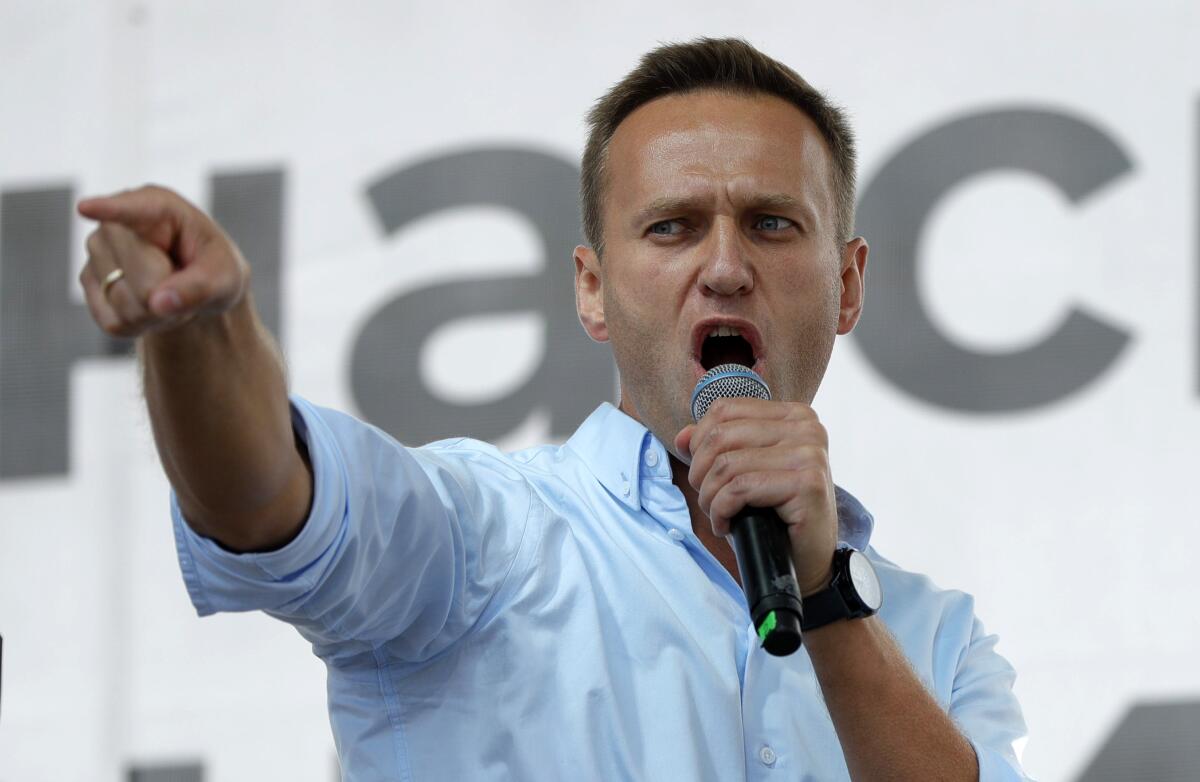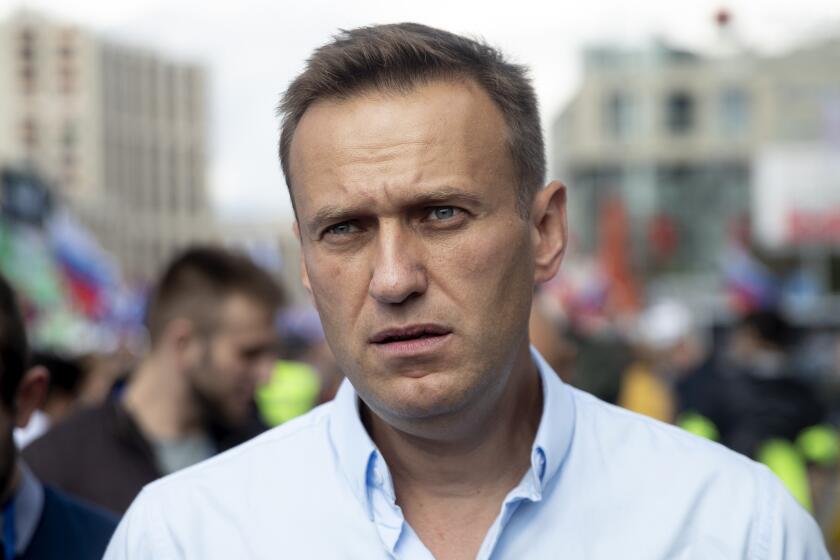Russia says no signs of crime so far in Alexei Navalny’s sudden illness

- Share via
MOSCOW — Russian authorities say they have found no indication so far that opposition politician Alexei Navalny’s coma, which his supporters and the German doctors treating him suspect was induced by poisoning, was caused by a criminal act.
A preliminary inquiry launched last week hasn’t found any indication of “deliberate criminal acts committed against” Navalny, Russia’s Prosecutor General’s office said Thursday. The statement comes amid growing pressure from the West to investigate the sudden illness of the Kremlin’s most vocal critic and Russian authorities’ apparent reluctance to do so.
Navalny, an opposition politician and corruption investigator who is a longtime foe of President Vladimir Putin, fell ill on a flight back to Moscow from Siberia on Aug. 20 and was taken to a hospital in the Siberian city of Omsk after the plane made an emergency landing.
Over the weekend, he was transferred to the Charite hospital in Berlin, where doctors found indications of toxic “cholinesterase inhibitors” in his system. They are yet to identify a specific substance.
Found in some drugs, pesticides and chemical nerve agents, cholinesterase inhibitors block the breakdown of a key chemical in the body, acetycholine, which transmits signals between nerve cells.
Navalny’s allies insist that the 44-year-old lawyer was deliberately poisoned and say the Kremlin was behind it, accusations that Russian officials rejected as “empty noise.”
Past example shows that falling afoul of Putin can portend poison peril
The Russian doctors who treated Navalny in Siberia have repeatedly contested the German hospital’s conclusion, saying that they had ruled out poisoning as a diagnosis and that their tests for cholinesterase inhibitors came back negative.
Navalny’s team submitted a request last week to Russia’s Investigative Committee, demanding that authorities launch a criminal probe into his illness.
On Thursday, Russian police said they have been conducting a preliminary probe — an inquiry to determine whether a criminal investigation should be conducted — to “establish all the circumstances of the incident.”
The announcement of the inquiry came after multiple Western and European officials called on Russia to start a full and transparent investigation into Navalny’s condition.
The Russian Prosecutor General’s office said it had asked Germany to share findings and clinical evidence of the alleged poisoning. The office said German authorities confirmed their “intention to cooperate.”
More to Read
Sign up for Essential California
The most important California stories and recommendations in your inbox every morning.
You may occasionally receive promotional content from the Los Angeles Times.











